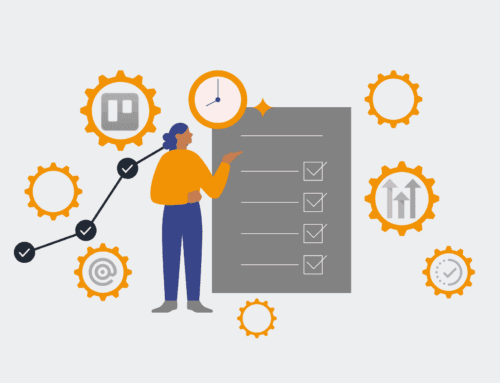Navigating Regulatory Compliance During International CRM Data Transfers
In today’s interconnected global economy, businesses frequently leverage Customer Relationship Management (CRM) systems to manage customer data across borders. While the ability to centralize and access this critical information globally offers immense strategic advantages, it also introduces a labyrinth of regulatory compliance challenges. For high-growth B2B companies, particularly those operating internationally, understanding and adhering to diverse data protection laws is not just a legal obligation—it’s a cornerstone of operational integrity and brand trust.
The Evolving Landscape of Global Data Privacy
The past decade has seen an explosion of data privacy regulations, moving far beyond the European Union’s GDPR (General Data Protection Regulation). We now contend with the California Consumer Privacy Act (CCPA), Brazil’s LGPD, Canada’s PIPEDA, Australia’s Privacy Act, and a growing list of country-specific mandates that dictate how personal data can be collected, stored, processed, and transferred. The core challenge for businesses lies in the varying definitions of “personal data,” “processing,” and the specific requirements for obtaining consent or establishing a legal basis for transfer, all of which can differ significantly from one jurisdiction to another.
Ignoring these regulations carries substantial risks. Penalties for non-compliance can be astronomical, often reaching millions of euros or a percentage of global annual turnover, as seen with GDPR fines. Beyond financial penalties, companies face significant reputational damage, loss of customer trust, and operational disruptions due to data breaches or forced cessation of data transfer activities. For businesses relying on CRM systems that consolidate data from various international sources, a single misstep can have cascading effects across the entire organization.
Strategic Imperatives for Cross-Border Data Integrity
Understanding Your Data Footprint and Flows
The first step in navigating this complex environment is to gain a crystal-clear understanding of your data. This involves conducting a thorough data mapping exercise: identifying what customer data you collect, where it originates, where it is stored (including backup locations), who has access to it, and critically, where it is transferred internationally. For CRM systems, this often means understanding the journey of a customer record from initial contact through sales, support, and marketing, across all integrated platforms.
Many businesses overlook the critical role of data backup solutions in their compliance strategy. A robust CRM backup system is not just about disaster recovery; it’s about maintaining data integrity, ensuring audit trails, and having the ability to restore data in a compliant manner. Without a clear understanding of your backup’s data residency and processing standards, you expose your organization to unnecessary risks during a compliance audit.
Implementing Robust Legal Transfer Mechanisms
When transferring CRM data across international borders, especially out of regions like the EU to countries without an “adequacy decision,” businesses must rely on specific legal mechanisms. These often include:
- Standard Contractual Clauses (SCCs): EU-approved contractual clauses that impose GDPR-like obligations on the data importer. Recent updates to SCCs (post-Schrems II) require data exporters to perform transfer impact assessments (TIAs) to ensure adequate protection in the recipient country.
- Binding Corporate Rules (BCRs): Internal codes of conduct for multinational corporations, approved by data protection authorities, that allow for intra-group transfers of personal data.
- Consent: While often cited, relying solely on consent for international data transfers is precarious due to the strict conditions for “freely given, specific, informed, and unambiguous” consent, and the right to withdraw it at any time.
Choosing the right mechanism requires expert legal and technical guidance to ensure it aligns with both the letter and spirit of the law, as well as the practicalities of your CRM operations.
Leveraging Automation and AI for Continuous Compliance
Manually tracking and ensuring compliance across dozens of integrated SaaS systems and diverse regulatory frameworks is a Sisyphean task. This is where the power of automation and AI, a core focus of 4Spot Consulting, becomes indispensable. By implementing intelligent automation within your data governance framework, businesses can:
- Automate Data Mapping: Continuously monitor data flows and identify where personal data resides and travels.
- Streamline Consent Management: Automate the collection, tracking, and honoring of user consent preferences across all CRM interactions.
- Ensure Data Minimization: Implement automated rules to collect only necessary data and to redact or anonymize sensitive information when not required.
- Enhance Data Security: Integrate AI-powered anomaly detection to flag suspicious data access or transfer attempts, augmenting your existing security protocols.
- Simplify Reporting and Auditing: Automate the generation of compliance reports and audit trails, significantly reducing the burden during regulatory reviews.
At 4Spot Consulting, our OpsMesh™ framework is designed to create a “single source of truth” for your operational data, including CRM, ensuring that compliance requirements are built into the very fabric of your systems, not bolted on as an afterthought. We help businesses integrate tools like Make.com to orchestrate complex data workflows, ensuring that international CRM data transfers are not only efficient but also fully compliant with global regulations.
Proactive Measures: A Partnership for Success
Navigating the complexities of international CRM data transfer compliance requires a proactive, strategic approach. It’s not enough to react to new regulations; businesses must anticipate and build resilient systems. This means:
- Regular Audits: Periodically review your data processing activities, particularly those involving international transfers.
- Vendor Due Diligence: Thoroughly vet all third-party vendors, especially CRM providers and backup services, for their data protection practices and compliance certifications.
- Employee Training: Ensure all employees handling personal data are aware of their responsibilities and the company’s compliance policies.
- Expert Guidance: Partner with specialists who understand both the legal nuances of data privacy and the technical capabilities of automation and AI.
For high-growth B2B companies, achieving seamless international CRM data transfers while maintaining stringent regulatory compliance is a competitive advantage. It builds trust, minimizes risk, and allows you to focus on what you do best: growing your business globally. Don’t let compliance become a bottleneck; transform it into an accelerator.
If you would like to read more, we recommend this article: Your Guide to Secure HR & Recruiting CRM Migration with CRM-Backup








